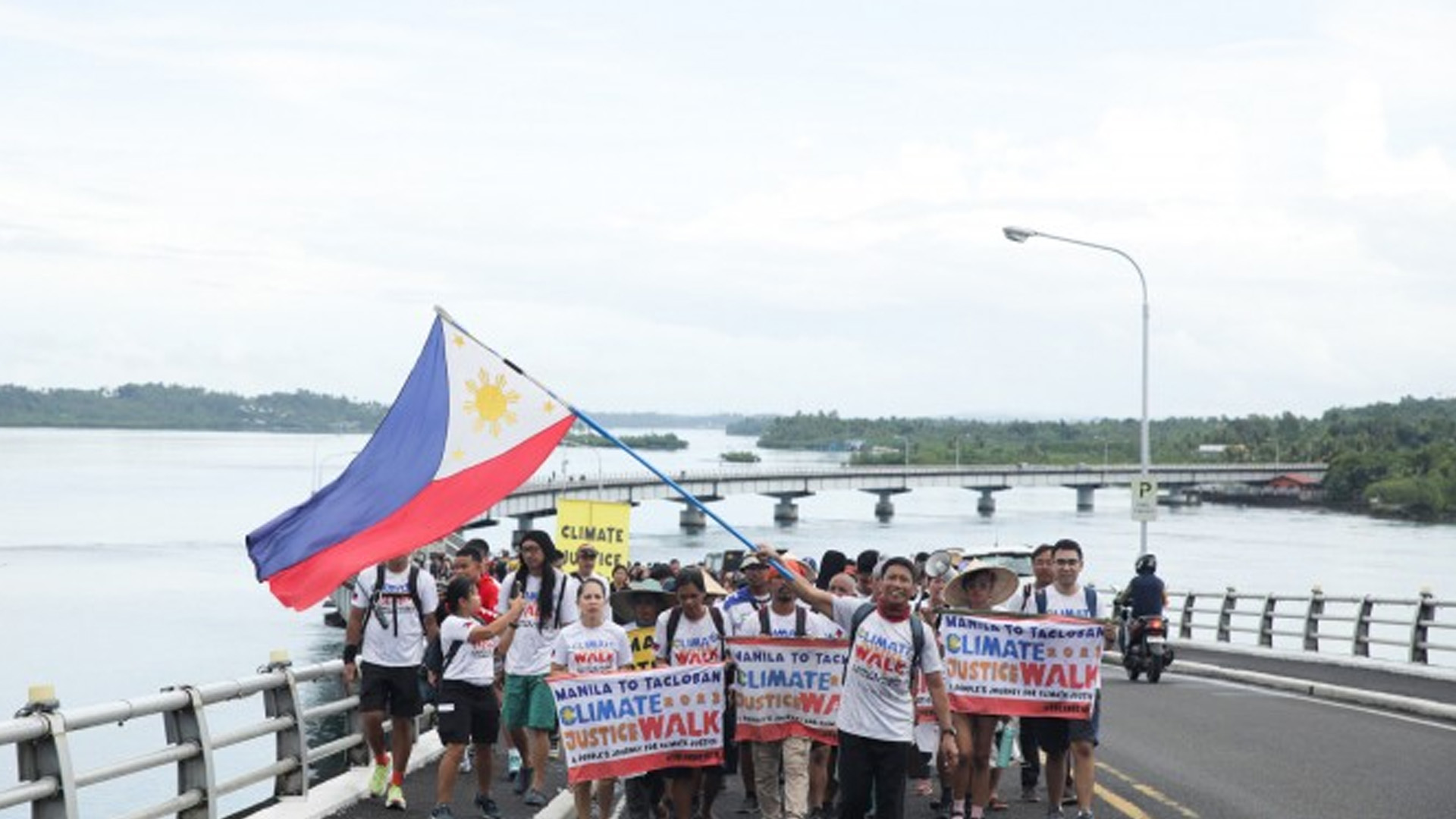After a month-long walk from Metro Manila, an environmental group composed of 28 people arrived in this city on Wednesday, just in time for the 10th-year commemoration of the onslaught of Super Typhoon Yolanda.
“The Climate Justice Walk does not end in Tacloban. Our real destination is in people’s hearts and minds – for climate hope to take root and yield results,” Yeb Saño, lead advocate and executive director of Greenpeace Southeast Asia, said in an interview Wednesday.
Saño said the Climate Justice Walk 2023: A People’s Journey for Climate Justice aimed to pay tribute to the nearly 7,000 lives lost to Yolanda.
The 1,000-km. journey on foot and bicycle is also a way of bringing hope to the people and a message of courage for communities, especially the vulnerable, to overcome the difficulties they are facing brought by climate change.
Exactly 10 years after the killer typhoon ravaged central Philippines, the government has yet to act aggressively to mitigate the effects of climate change, Saño said.
“The Philippine government has played its role internationally, but we expect them to continue being a champion for climate justice, for the rights and interest of the Filipino people when it comes to climate change impact,” he said.
“That means standing up strongly in the international community and then voicing out the injustice of climate change and that they call for climate reparation for rich countries to pay for the damage and loss that we experience.”
The arrival of the group in Tacloban completes their more than 1,000-km. journey under the harsh sun and occasional rain with about 30 stops.
As a direct result of their journey reminiscent of the 2014 Climate Walk, a climate emergency was declared in two of the stops – Albay province and Catbalogan City in Samar.
The declaration calls for an end to the nation’s dependence on fossil fuels, such as oil, gas, and other false solutions; commitments to implement a just transition towards the promotion and development of renewable energy; adequate resources for an inclusive, participatory, and rights-based approach to education and capacity-building on climate impacts and solutions.
It also calls for a review and evaluation of local climate change adaptation and mitigation, local development, and investment plans to align with the climate imperative, as well as for scaled-up national and global measures to avert or minimize local damage. (PNA)









